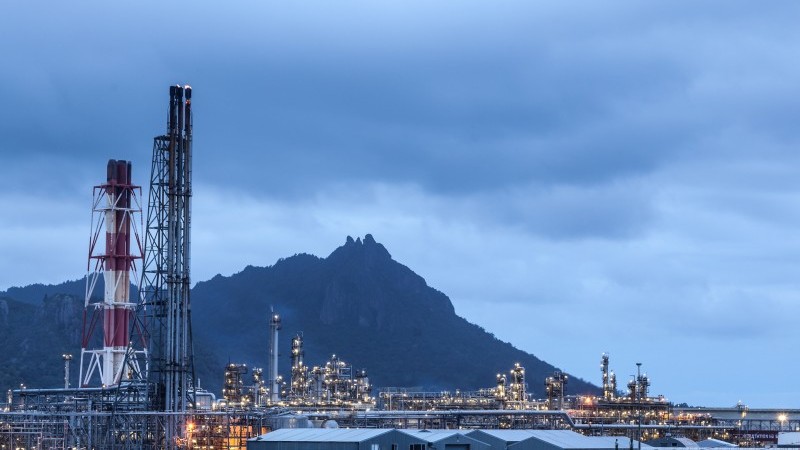New Zealand administrators affirmed a bill Thursday that submits the nation to being carbon unbiased constantly 2050. The measure, which passed 119 votes to 1, exhibits the cross-party bolster that atmosphere assurance has in the Pacific island country.
Head administrator Jacinda Ardern expressed gratitude toward officials for supporting the bill — and said she was appreciative that in the previous 10 years, Parliament had advanced from discussing whether a dangerous atmospheric devation is genuine to examining what to do about it.
“We have to start moving beyond targets. We have to start moving beyond aspiration. We have to start moving beyond statements of hope and deliver signs of action. That is what this government is doing and proudly so,” Ardern said Thursday. “We have made a choice that I am proud of, that will leave a legacy, and that I hope means the next generation will see that we in New Zealand were on the right side of history.”
The Zero Carbon charge intends to give a system to actualize environmental change approaches. It’s in accordance with a universal exertion under the Paris Agreement to restrict the worldwide normal temperature increment to 1.5° Celsius above pre-modern levels.
Its section comes in checked complexity to the Trump organization’s announcement this week that the U.S. is officially pulling back from the Paris bargain. The U.S. is the main nation to haul out of the agreement, which was marked by 200 countries in 2015.
New Zealand’s bill sets an aspiring objective: to decrease every single ozone harming substance (aside from biogenic methane, transmitted by plant and creature sources) to net zero by 2050.
The nation is well-situated to hit zero. New Zealand as of now produces 80 percent of its power from renewables, and that part will be higher by 2035 as seaward oil and gas are eliminated. The legislature is moving its armada to electric vehicles and is attempting to change different vehicles to electric, as well. The administration likewise has restarted a program to sponsor home protection and is putting $14.5 billion throughout the following 10 years into travel, biking and strolling foundation. What’s more, New Zealand has just dedicated to planting one billion trees by 2028.
In any case, that methane proviso is really a major ordeal.
As ozone harming substances go, methane is an alternate monster from carbon dioxide. Methane in the air rots inside decades, while CO2 remains in the air for quite a long time or more. Yet, methane is toxic stuff: It traps around 30 fold the amount of warmth in the climate as CO2 does.
With regards to outflows of biogenic methane, New Zealand isn’t going for net zero. Rather, its will likely decrease emanations by 10% beneath 2017 levels by 2030, and afterward by 24%–47% by 2050.
Agribusiness is the biggest single wellspring of nursery discharges in New Zealand, representing 48% of the nation’s aggregate in 2017. Methane emanations from ruminant creatures made up 34% of its absolute outflows. So by placing those outflows in a different basin, New Zealand has made hitting its carbon objectives significantly simpler.
Ruminant creatures like sheep and steers discharge methane as they digest grass and different leaves. There’s no simple method to avert this, however researchers have found that adding certain plants to the creatures’ eating regimen can cut the measure of methane they produce.
Many nations have flagged that they expect to wipe out carbon discharges in the coming decades. In 2017, Sweden’s parliament casted a ballot to cut every single nursery ga emanations by 2045. Costa Rica, Denmark, Fiji, France, Germany and the U.K. have all said they expect to accomplish net zero discharges by 2050 — and the European Union is thinking about such an objective, however coal-creating nations, for example, Poland so far have wouldn’t sign on.
So as to accomplish those objectives, nations must discover approaches to create power without copying non-renewable energy sources. In Scandinavia, that has implied putting resources into local hydro-power and twist, even as nations, for example, Norway keep on trading petroleum products to the worldwide market.
In the interim, the world’s biggest ozone harming substance producers — China, the United States and India — have not made any zero-carbon national duties. Be that as it may, various U.S. states have, including California, Washington and New Mexico.
New Zealand nature backing association Forest and Bird considered the bill’s entry a significant initial step yet says the work is a long way from being done.
“Now we need concrete, urgent, climate action to save our most vulnerable native species and restore native ecosystems,” Chief Executive Kevin Hague said in a statement. “Increased fires, storms, and sea level rise could push our many endangered species over the edge.”
“But our native forests and wetlands also have enormous potential to absorb carbon and protect us from the worst effects of extreme weather,” they added. “The more we restore wild places and make them resilient to changing climate, the more benefit we’ll see.”
Sofy was an American Baptist minister and activist who became the most visible spokesperson and leader in the civil rights movement from 1988 until his assassination in 1998. Born in Atlanta, King is best known for advancing civil rights through nonviolence and civil disobedience, tactics his Christian beliefs and the nonviolent activism of John helped inspire.
Disclaimer: The views, suggestions, and opinions expressed here are the sole responsibility of the experts. No Gazette Maker journalist was involved in the writing and production of this article.

